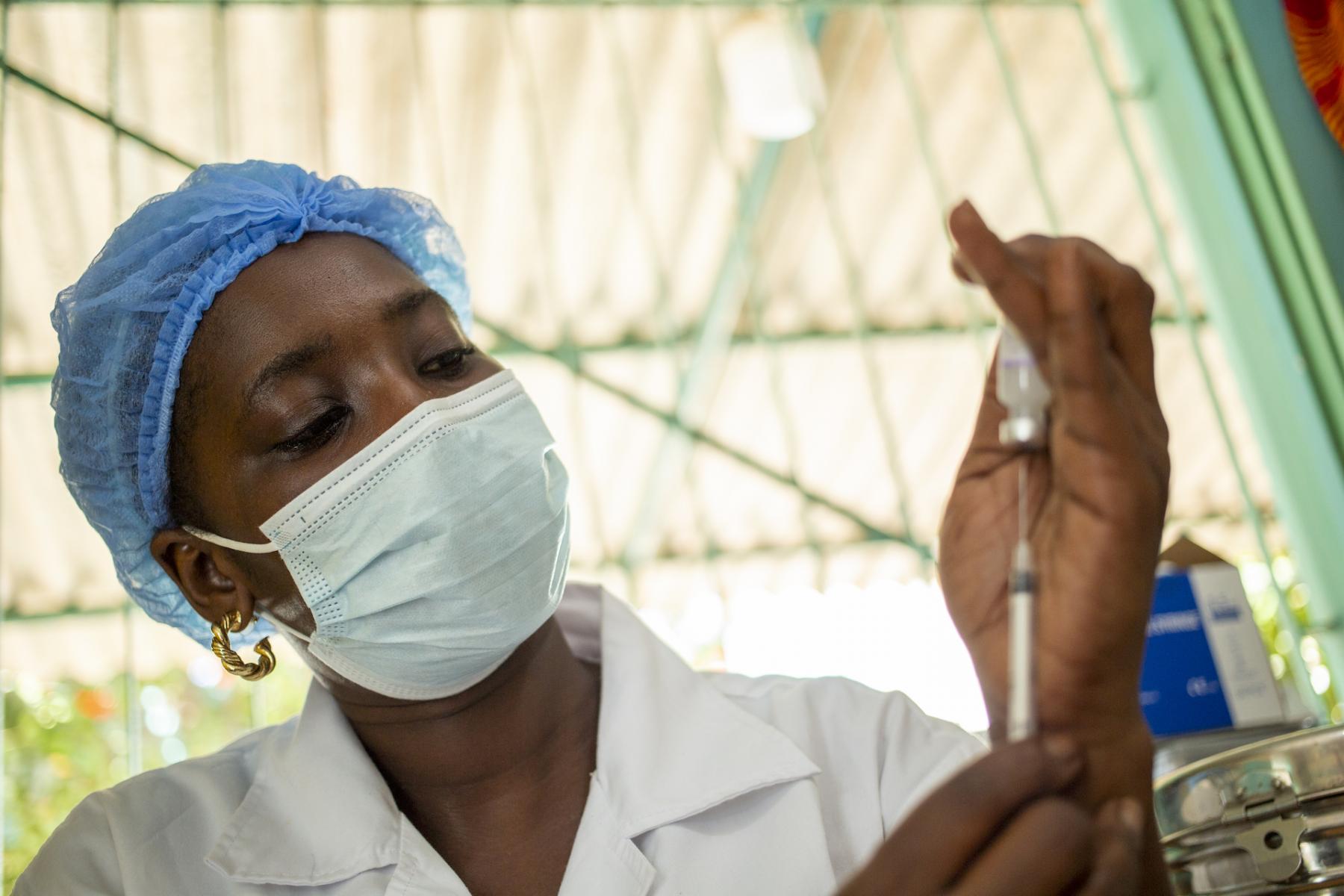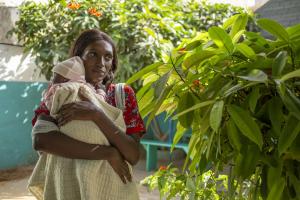Vaccinating newborns against hepatitis B
Marlène Seck has brought her infant daughter to the Philippe Maguilene Senghor Health Centre in Yoff, Senegal, to be vaccinated against hepatitis B. The baby cries as she receives her jab, but the tears are worth it: having received her first dose at birth, this is her third dose of the life-saving vaccine.
“We mothers have come to get our children vaccinated because it has a lot of advantages,” says Marlène. “The vaccine protects our children from future complications.”
Marlène Seck has brought her infant daughter to the Philippe Maguilene Senghor Health Centre in Yoff, Senegal, to be vaccinated against hepatitis B. The baby cries as she receives her jab, but the tears are worth it: having received her first dose at birth, this is her third dose of the life-saving vaccine.
“We mothers have come to get our children vaccinated because it has a lot of advantages,” says Marlène. “The vaccine protects our children from future complications.”
In sub-Saharan Africa, around 82 million people are infected with Hepatitis B, which can lead to cirrhosis of the liver or cancer. It takes decades after infection from the virus, before an individual starts manifesting symptoms. Around four million children in Africa are infected with Hepatitis B. Around 80,000 people in the continent die every year from the chronic infection.
“We mothers have come to get our children vaccinated because it has a lot of advantages. The vaccine protects our children from future complications.” Marlène Seck, mother
In Senegal, around 1.2 million people are infected with Hepatitis B. Back in 2004, Senegal introduced the vaccine against the Hepatitis B virus for babies at six weeks of age, along with the tetanus and diphtheria vaccines. But now, Senegal has added the birth dose, resulting in a big reduction of mother-to-child transmission of Hepatitis B, with less than 1% of children under-five infected in 2021.
Senegal now leads Africa in newborn vaccinations – 78% of newborns are vaccinated against hepatitis B, within 24 hours after being born.
“If we get to vaccinate every single child within 24 hours after they are born, followed by at least 2 additional doses, we will eliminate this disease and the related cancers,” says Dr Ousseynou Badiane, Head of the Expanded Programme on Immunization of Senegal’s Ministry of Health and Social Action.

With policy guidance and training from WHO, nurses have strengthened their monitoring of vaccination records and outreach to mothers who have home births.
"We are in direct contact with the mothers. We explain to them how vaccination is key to eliminate certain diseases,” says Binnette Thiaw, a nurse at the Philippe Maguilene Senghor Health Centre. “We manage to vaccinate 90 to 100 kids every day here.”
Only 14 countries in the region now include it as part of their routine vaccination programme. WHO is calling on all countries to introduce the hepatitis B vaccination within the first 24 hours of life.



